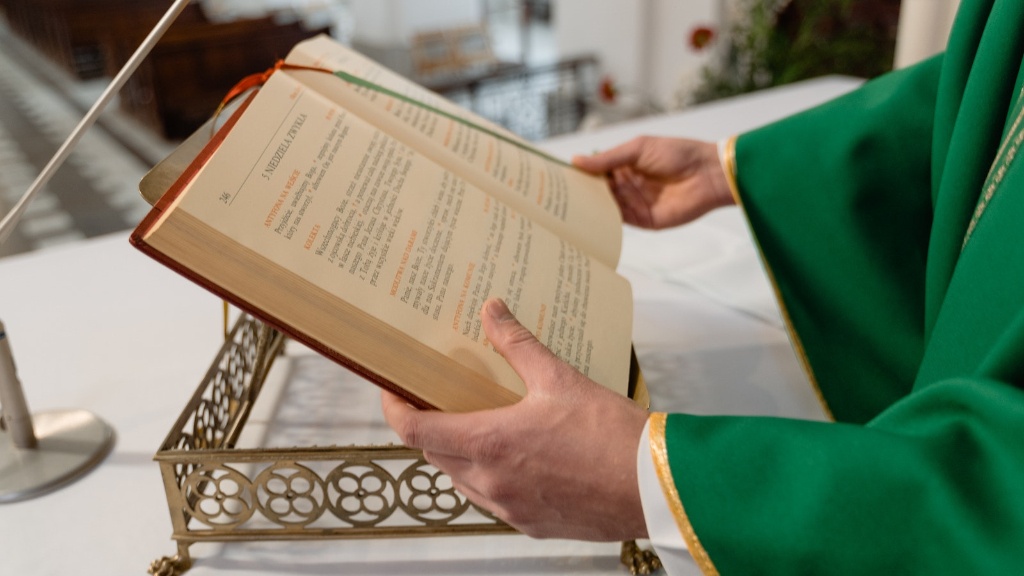Does The Bible Support Grounds For Divorce?
Divorce is a thorny issue in the Christian faith. Our society has shifted the conversation away from being a permanent union to encourage more options for couples if the marriage is not working out, but often times there is a clash between the secular and religious mindset. The Bible only mentions divorce twice in the book of Matthew, but does it actually endorse it? To best answer this question, one must dive into the words and meaning of the scriptures themselves.
According to biblical experts, many of the accounts of divorces in Ancient Israel had more to do with legal grounds rather than a complete separation. That is to say, it was typically only in instances of serious misconduct or abuse, such as adultery or abandonment, that the state would grant a divorce. Unailment and dissipation of marriage property were also legal reasons that could cause an Old Testament divorce. In these cases, a divorce was upheld as a compromise between the two parties and seen as a way of “saving” a marriage or protecting individuals from potential harm.
Even though it does not outright state it, the Bible encourages couples to keep their marriage intact and stay together for the sake of the family. In 1 Corinthians 7: 10-11, it reads that if a married couple is able to reconcile, they should do so. For example, if a husband is committing adultery, the scriptures encourage the wife to ask him to repent, and if he doesn’t then the marriage is allowed to be dissolved. Similarly, Matthew 19 reads that it is OK for a marriage to be dissolved if “some uncleanness is found” in the relationship.
Modern interpretations of the Bible suggest that abuse is a valid ground for divorce, especially in the context of physical and emotional harm. In today’s society, it is generally acknowledged that abuse is wrong and marriage should not be a death sentence. If abuse is present in a relationship, it is even more important to recognize that divorce may be the most healthiest option to protect oneself from further devastation.
Are any Circumstances Misconstrued as Abuse?
Although abuse often times is seen as black and white, there may be circumstantial gray areas. There are more subtle forms of abuse that are not always as obvious, such as manipulation, gaslighting, and emotional coercion. All of these patterns of abuse have a damaging effect on the victim and can still be grounds for divorce.
It is not just physical and emotional abuse that are grounds for divorce. There are also spiritual, financial and verbal abuses to consider. For example, the emotional abuse of a spouse who is not allowing their partner to practice their faith equally or blocking their ability to seek equal financial allocation of resources can be seen as a motivator to divorce. Additionally, every marital relationship is unique and the ultimate determination of what constitutes abuse will depend on the individuals involved.
It is also important to note that some form of abuse can occur without being intentional, or without either partner fully understanding how to use effective communication tools or know how to resolve disputes without verbally attacking each other. Such unintentional abuse can still have a profound impact on the victim and can be seen as grounds for a divorce. This is why it is essential to be aware of the different forms of communication in a relationship and what is considered abusive.
What Does Divorce Entail?
Divorce can be a difficult decision, even in cases of abuse. It is important to understand that it is not just a legal process but also an emotional one. It is a huge adjustment period in the life of any couple and it can often be overwhelming. It is important to seek support from family and friends as peacefully as possible and to be mindful of any children that are involved.
One of the first steps to take in the divorce process is to seek legal advice. A lawyer that is experienced in divorce proceedings can be invaluable and can help to ensure the rights of both parties are given the greatest consideration. The legal case for divorce in the Bible is laid out in Deuteronomy 24:1-4. It provides guidance for the process of filing for divorce, the damages to be provided, and any associated fines.
In any situation, it is important to remember that the Bible calls for justice and compassion. It is not an excuse to mistreat or cause harm to another, and if it is done in the name of religion, it is completely unacceptable. When considering whether or not abuse is grounds for divorce, it is important to put the safety and well-being of the individual ahead of all other considerations, regardless of what the Bible may or may not say.
What Are Long-term Effects Of Abuse?
Abuse takes many forms, but it can have long-term, damaging effects for the person who experienced it. It may lead to anxiety, depression, post-traumatic stress disorder, and other mental health issues. It can also lead to difficulty in relationships, including professional relationships and even potentially with the legal system.
Long-term effects of abuse can be far-reaching and can leave a lasting impression. Victims may struggle with addiction, self-esteem issues, and even suicidal thoughts. Victims may also struggle with legal issues because of the trauma experienced. Although the Bible does not provide an outright endorsement for divorce in cases of abuse, it does offer hope for those in need.
Victims of abuse may find comfort in turning to resources and support groups, such as those offered by churches or even therapy sessions. These sites are instrumental in providing support, as well as updating victims on the legal system in place. Knowing that there is a path forward, even if it involves dissolving a marriage, and finding a safe space to discuss what went wrong can be liberating and healing for abuse survivors.
What Role Does The Church Play In Abuse?
The role that the church plays in divorce and abuse can be complicated. On one hand, it can be comforting to find solace in a faith-based community, especially during a difficult time. On the other hand, the church may not provide the full support someone needs if they are considering a divorce and looking to gain freedom from the abuse they are experiencing.
The church often follows traditional interpretations of the Bible, and therefore may not be in line with the secular perspective which supports a divorce in cases of abuse. It is important to find a church or religious institution that offers empathy and understanding, as well as sources to look for professional help.
For victims of abuse, the church should provide a safe and supportive space. They should have an open discussion about the Bible verses that apply to abuse and not just those that align with a traditional interpretation. Additionally, victims of abuse should be encouraged to get counseling and connect with support groups.
The church should provide resources for those considering legal action as well. One way to do this is to refer individuals to domestic violence abuse support programs or victims resources. In addition, the church should allow its members to make options for themselves and be free of any pressure to make a certain decision.
Can Counseling Help?
Often times, when faced with a potential divorce, couples may seek counseling to try and save the marriage. Counseling can be a powerful tool in understanding the dynamics of a relationship and uncovering potential underlying issues. The goal of counseling is to help a couple communicate more effectively, understand each other’s point of view, and come to a compromise that allows the relationship to move forward.
Counseling is an important part of understanding one’s relationship dynamic and can be highly beneficial, even if a divorce is inevitable. In some cases, counseling can provide an opportunity for the couple to explore options before making the ultimate decision. For example, the couple can explore boundaries and discuss how to co-parent if it is applicable.
Counseling can also be a critical tool for victims of abuse. It can help them understand themselves better, learn coping skills to manage anxiety or depression, and ultimately come to a healthier place in life. It is important to note that counseling alone should not replace behavioral changes from the abuser, if applicable, and it should never be used as a tool to save the relationship.
What is the Verdict?
At the end of the day, it is important to remember that the Bible does not necessarily provide an explicit endorsement for divorce in cases of abuse, but it does provide hope. In cases of abuse, it is important to be as compassionate as possible and to put the safety and well-being of the victim above all else.
Divorce is a decision that is both difficult and unique to the couple. If abuse is present, it is important to forgive, but not forget. It is also important to recognize the signs of abuse, seek professional help if needed, and find the best possible outcome.




